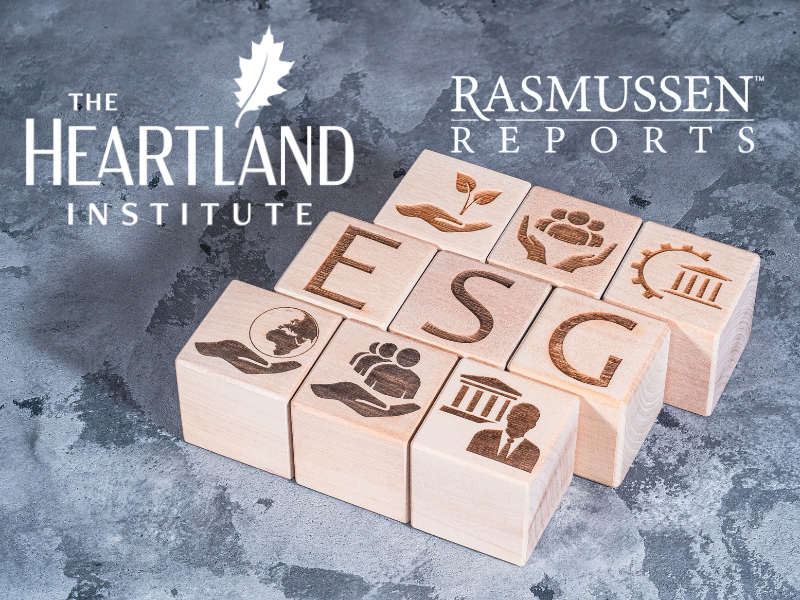According to the American Legislative Exchange Council (ALEC), at least four “critical state tax issues” will be debated this year in Congress.
Facing the worst fiscal crisis since World War II, state governments have looked high and low for solutions to erase budget deficits. States have bonded tobacco settlement funds, accelerated tax collections, delayed payments, raided special funds, and in some cases raised taxes and cut spending.
“It’s the most dire situation we’ve seen in over 20 years,” noted Raymond C. Scheppach, executive director of the National Governors Association, in a recent ALEC report. “Governors are dealing with unprecedented fiscal pressure. Even as the economy turns around, the state budget forecast will remain stormy since revenue growth lags the recovery by at least 12 to 18 months.”
Increasingly, the states are also looking to Congress for reinforcements in their war against red ink. In particular, state lawmakers and revenue officials are lobbying Congress on four fiscal issues: remote collection of state sales and use taxes, business activity taxes, the Internet tax moratorium, and emergency federal assistance for the states. All four are viewed by state policymakers as crucial to the future fiscal health of the states, if not their viability as sovereign fiscal entities.
State Sales and Use Taxes
The collection of state sales and use taxes has been controversial for some time, dating back to the early days of catalog sales. The Supreme Court ruled in the 1992 Quill decision that states could “only require sales and use tax collection from vendors with a physical presence in a particular state.” The ruling hinged on the undue burden vendors would bear if they were expected to collect sales and use taxes in multiple jurisdictions and the adverse impact this would have on interstate commerce.
With the advent of the Internet after Quill was decided, state tax officials fear an erosion of their sales tax bases as more and more people purchase goods from out of state. To address that concern, “legislation has been introduced [in Congress] that would allow states to enter into a multi-state compact for purposes of collecting sales and uses taxes on interstate commerce,” said Adam Thierer, director of telecommunication studies at the Cato Institute.
The proposed compact, called the Streamlined Sales Tax Project (SSTP), seeks to “reduce the burden placed on vendors” who would potentially have to collect sales and use taxes for thousands of tax jurisdictions. SSTP is hopeful Congress will overturn the Quill decision if enough states voluntarily simplify their sales tax systems. Many businesses would appreciate tax simplification and thus support SSTP, and many state tax officials support it because they believe it will allow them to reap billions in new sales tax revenues.
Lee Goodman, an attorney who specializes in state tax issues that affect interstate commerce, nevertheless thinks Congress is unlikely to act on SSTP in the near future. “It is unlikely that Congress would vote to expand sales taxes to interstate commerce in 2004 because too few states have brought their laws into complete conformity, there has been no demonstration that an interstate sales tax software can work seamlessly in the mainframes of all businesses in America, and it’s an election year.”
Business Activity Taxes
The collection of state business activity taxes (BAT) is also a focus of debate in Congress. States impose a variety of business taxes, including corporate income taxes, franchise fees, and gross receipts taxes. States have typically levied these taxes on businesses with a physical presence, such as an office or warehouse, but the twenty-first century economy transcends state borders. The Multistate Tax Commission estimates states are “losing $9 billion per year in uncollected taxes on business activities.”
State revenue officials are more aggressively seeking to collect business activity taxes. New Jersey tried to charge a software company based in South Carolina more than $500 a year in business activity taxes simply because the company derived $49 in revenues from a New Jersey customer. Similar situations are occurring in states across the country.
Legislation was introduced in Congress to require a physical presence for state taxation of business activities, and several states are considering legislation as well. The complexity of the issue leads some analysts to doubt whether any action will come quickly. “It is unlikely that Congress will pass BAT reform this year,” predicted Goodman, “in part because the issue is complex and will compete with other major legislative initiatives of higher priority.”
Goodman also thinks the BAT issue could be coupled with SSTP, and Thierer agrees: “It remains unclear if a legislative quid pro quo could be brokered to try to appease all the interests in these debates,” Thierer said.
Internet Taxation
The third congressional issue related to state tax collection is the Internet Tax Freedom Act (ITFA). Originally passed in 1998, the ITFA forbids state taxation of Internet access (unless taxed prior to the enactment of the ITFA) as well as multiple and discriminatory state taxation of interstate commerce. The act would have expired in 2001, but it was reauthorized that year for an additional two years. A bill to make the moratorium permanent passed the House of Representatives in the fall of 2003, but the measure has stalled in the Senate.
Several lawmakers, including Sen. Lamar Alexander (R-Tennessee), see the ITFA as an attack on state sovereignty. “This is not about the Internet, it’s not about taxes. It’s about governors, and mayors, and legislators who can make their own decisions about what services to provide and what taxes to raise,” he said. “If this were to succeed, the next crop of candidates for the United States Senate would run on the platform for abolishing the state income tax.”
The ITFA contains language protective of state tax sovereignty. Dan Mitchell, an economist with The Heritage Foundation, is more concerned about what might happen to states if the ITFA is not made permanent. “I fear that the economy might be hurt if the moratorium is not extended–and that has a stronger impact on state revenue than any taxes that might be imposed on online activity.”
John Berthoud, president of the National Taxpayers Union, agreed. “The states have seen a large increase in revenues in recent years and can do just fine without getting their claws on one more area of commerce.”
State Bailouts
The final state fiscal issue Congress may have to address in 2004 is another federal bailout for the states.
In 2003, after intense pressure was applied by state governments for as much as $100 billion in emergency assistance, Congress relented and provided $20 billion for state budget deficits. Congress did place some restrictions on the use of the funds, most importantly that the federal money could not be used to start new programs.
Critics of the bailout found little comfort in the restrictions, however. “Taxpayers who live in fiscally responsible states like Colorado and New Mexico should not have to fund the excesses of states like California,” said Michael New, an adjunct scholar for the Cato Institute. New thinks a better approach would be for Congress to provide funds only to states with tax and expenditure limitations.
The Heritage Foundation’s Mitchell expects the states to ask for more in 2004. “Politicians always want more money to spend. The $20 billion spent last year almost certainly encouraged states to defer much-needed reforms, so we can expect demands for more handouts this year.”
Good News and Bad News
With complex issues like SSTP, BAT, ITFA, and federal bailouts, it can be easy to miss the forest for the trees. What is the state of fiscal federalism in 2004? Richard Vedder, an economics professor at Ohio University, says there is good news and bad news on that front.
“The good news is that there is a great deal of tax competition between states, and the effect of it has been to lower tax burdens on the whole, and in particular in high-tax states,” Vedder said.
And the bad?
“There are growing forces at work to ‘harmonize’ taxes, which has the potential impact of restricting tax competition,” Vedder said. Some of the proposals are well-intentioned, he believes, but “imposing one-size-fits-all standards on the states threatens the vibrancy of our ‘laboratories of democracy.'”
Chris Atkins is director of tax and fiscal policy for the American Legislative Exchange Council. His email address is [email protected].
For more information …
visit the ALEC Web site at http://www.alec.org.



